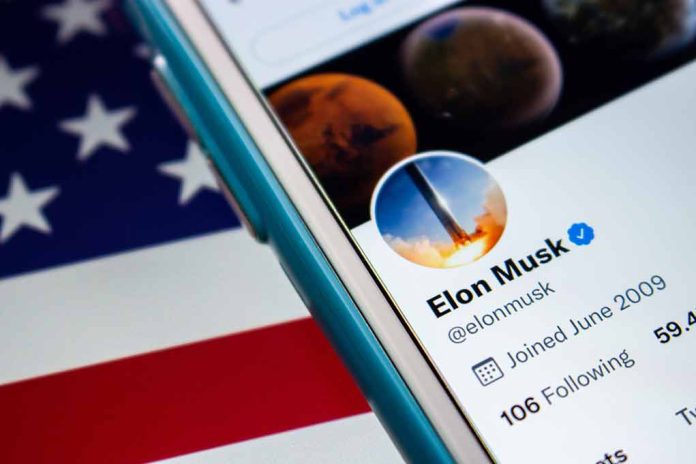
The SEC has launched a lawsuit against Elon Musk, alleging securities fraud during his acquisition of Twitter in 2022, setting the stage for a legal battle that could reshape the landscape of corporate regulations.
At a Glance
- SEC sues Elon Musk for alleged securities fraud in Twitter acquisition
- Musk accused of failing to disclose his stake in Twitter, potentially saving $150 million
- Musk’s lawyer calls the lawsuit a “sham” and an admission of a weak case
- The case emerges as President-elect Trump prepares for his second term
- SEC seeks jury trial and civil penalties against Musk
SEC Alleges Musk Manipulated Twitter Stock Prices
The Securities and Exchange Commission (SEC) has filed a lawsuit against Elon Musk, accusing him of securities fraud related to his $44 billion acquisition of Twitter in 2022. The regulatory body claims that Musk failed to properly disclose his stake in the social media platform, allowing him to purchase shares at artificially low prices.
According to the SEC, Musk was over 10 days late in reporting his stake, resulting in an alleged underpayment of at least $150 million for shares. This delay in disclosure is at the heart of the SEC’s case, which seeks a jury trial and aims to have Musk pay disgorgement and civil penalties.
Musk’s Legal Team Responds
In response to the SEC’s allegations, Musk’s legal team has come out swinging. Alex Spiro, Musk’s lawyer, dismissed the lawsuit as a “sham” and suggested it was an admission of the SEC’s inability to build a strong case against his client.
“This is an admission by the SEC that they cannot bring an actual case,” said Spiro.
Musk himself has not remained silent on the matter. In a post on X, formerly Twitter, he criticized the SEC as a “totally broken organization.” This latest clash adds to Musk’s history of confrontations with the regulatory body, including a 2018 charge for misleading statements about taking Tesla private.
the sec is suing elon musk for buying twitter at “artificially low prices” even though he bought it for $44 billion and industry analysts said it was worth more like $30 billion?
nothing makes sense man
— Shibetoshi Nakamoto (@BillyM2k) January 14, 2025
Political Implications and Future Outlook
The timing of this lawsuit is particularly noteworthy, coming just as President-elect Donald Trump prepares to take office for a second term. Musk is expected to have significant influence in the new administration, with a focus on reducing regulations and government waste that he and other business leaders view as burdensome.
Trump plans to replace SEC chairman Gary Gensler with Paul Atkins, signaling a potential shift in the regulatory landscape. Furthermore, Musk and Vivek Ramaswamy are rumored to be heading a new Department of Government Efficiency (DOGE) under the Trump administration, which could further influence the direction of corporate oversight.
The Road Ahead
As the legal battle unfolds, questions arise about the future of this case under the new administration. With SEC Chair Gary Gensler planning to step down on January 20, it remains uncertain whether the incoming leadership will pursue the lawsuit.
The case against Musk highlights the complex relationship between innovative business leaders and regulatory bodies, with critics calling the lawsuit another example of political lawfare. As the situation develops, it will undoubtedly continue to draw attention from both the business world and political sphere, potentially setting precedents for future corporate acquisitions and disclosures.






















